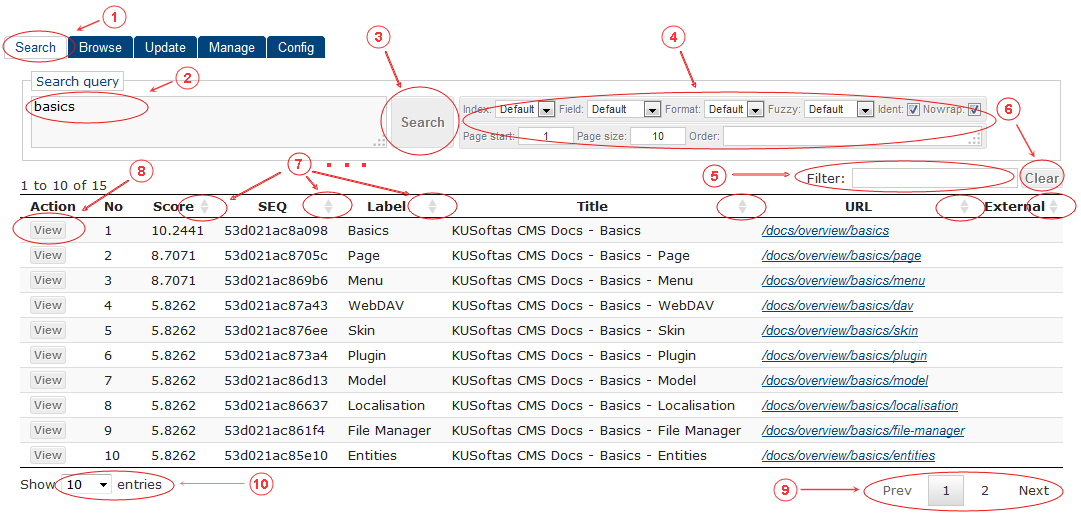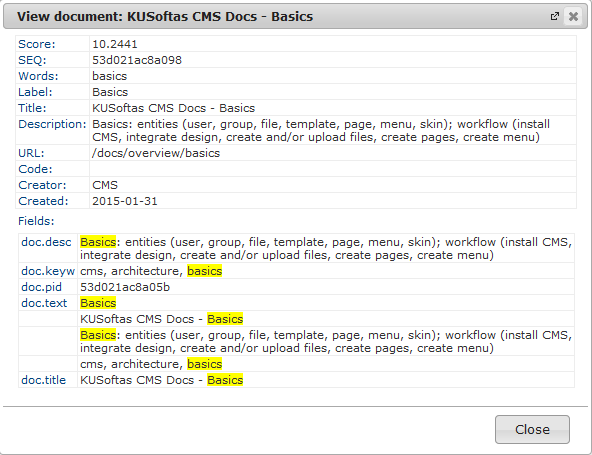
- "Search" tab selected
- Search query: keyword, phrase or expression (see Apache Lucene Query Syntax. KUSoftas CMS currently does not support: proximity and regular expression search)
- Search execute button
- Search settings:
- Index to be used to search: default (defined in configuration) or select other
- Default field to be used if not defined in query: default (defined in configuration) or select other
- Search results format: default (defined in configuration) or select XML, JSON or Table
- Fuzzy will use method: default (defined in configuration) or select:
- FSA - Levenshtein finite state automata
- FSA Lazy - Levenshtein finite state automata, but load in memory automata parts on demand (may be used when FSA contains huge number of words)
- Like - use DBMS SQL like statements instead of FSA; usefull when very short words
- Ident XML / JSON tags in search results (if XML or JSON format in use)
- Nowrap XML / JSON search results (only when ident is true) - to see results in compact form
- Page start - start paging from some search results item sequence number
- Page size
- Order: default (defined in configuration) or specify. Fields keys and predifined word "score" may be used. Add coma separated word "reverse" for descending order. Separate with ";" ordering fields. Ex.: doc.title;score,reverse
- Filter search results
- Clear filtering
- Sort search results by column
- View indexed item data button
- Search results paging
- Page size
Search results:
- Score - caculated using tf-idf (term frequency–inverse document frequency) formula and bosstings, coming from indexing, fields, words and query
- SEQ - indexed item unique ID
- Label - indexed item menu title (if site page) or item title
- Title - indexed item title
- URL - URL link to indexed item page
- Code - indexed item classification code (only in XML / JSON format)
- Creator - indexed item creator name (only in XML / JSON format)
- Created - indexed item creation date (only in XML / JSON format)
- Words - query words found in indexed item (only in XML / JSON format)
- Field - fields data in indexed item (only in XML / JSON format)
View index item data:

